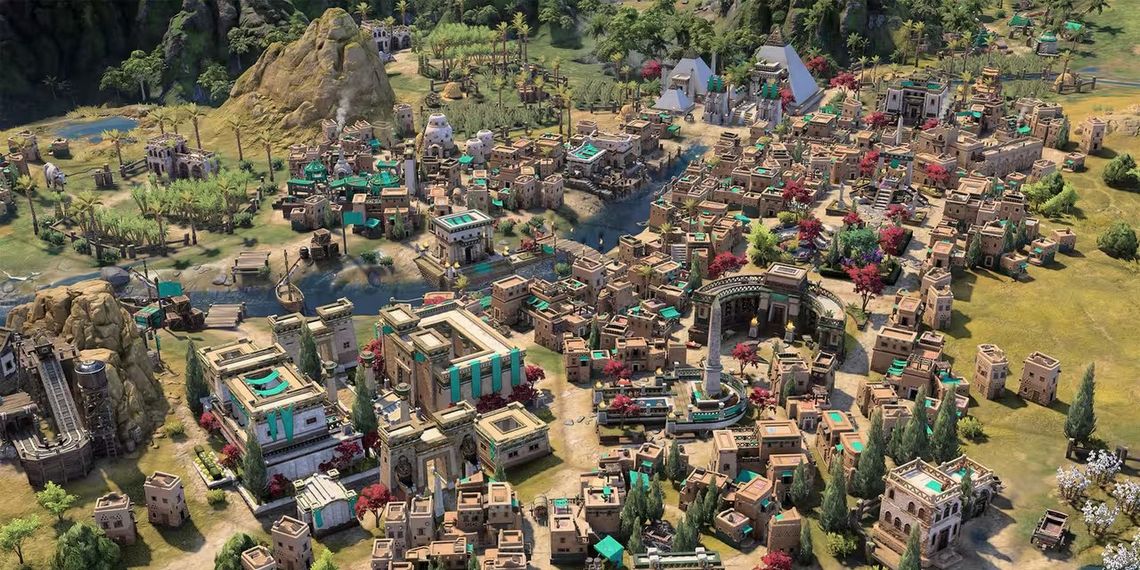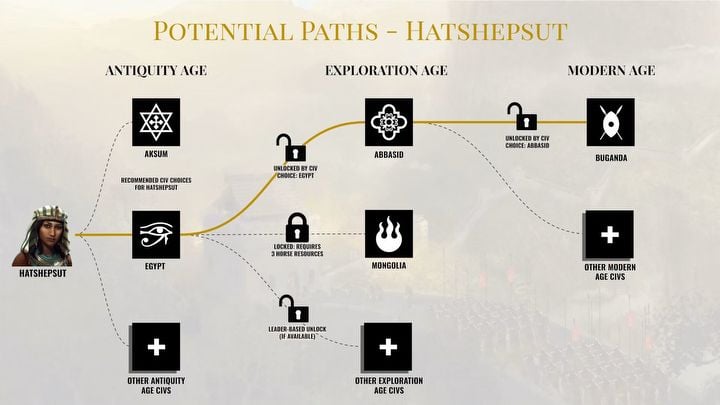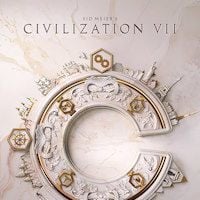Detailed Look at Antiquity in Civilization 7. Firaxis Unveils Potential Paths and Major Changes
Sid Meier's Civilization 7 developers showcased the age of antiquity during a more than 2-hour stream. We learned more about the so-called „Potential Paths”.

As announced by the developers of Sid Meier's Civilization 7, today marked the release of the Civ Streams series. This series aims to provide detailed explanations of the upcoming installment of the extremely popular turn-based strategy game series. Up to now, we have discovered more about ancient times and gained a more detailed understanding of the 6 dominant civilizations of that era.
In this very extensive material, the devs focused on many issues. I've outlined the most important ones below; you can check out the rest in the video (above) or in the news published by Firaxis Games studio.
Firstly, it's worth mentioning that Greece has been added to the previously revealed civilizations with which we will begin the game in the ancient era. During the Age of Exploration, the Shawnee Indian tribe from North America appeared. Let's remember that the third Age is modern times.
The most important element of the new Civilization will be the so-called Ages. The leader of our civilization, whom we guide in each one, can take various "Potential Paths" through them, depending on the course of the game. The graphic below from the official website perfectly shows what these mechanics will look like.
- When the first age ends, we will have to invest the collected Potential Paths in new equipment, while at the same time choosing which civilization we want to develop next.
- Some unique structures built, for instance, in ancient times, can be transported to a different age. This also applies to tradition.
- The unit stops moving when the terrain is covered with trees, marshy, or uneven. Unless it has the ability to overcome those obstacles.
- Individual settlements can focus on a particular profession, such as farming, mining, or trade. In this way they are to deliver goods to larger centers.
- The Great People will be designated separately for each civilization (in Civilization VI, you had to compete for them).
- The developers will introduce a mechanic called "War Wearines." Residents may experience the difficulties of armed conflict, as the name implies.
- Each civilization will have its own "miracle," which we will unlock by developing the skill tree.
- Just like in Civilization V and VI, the gameplay of each nation will be enhanced by unique musical themes. We could hear some of them during today's showcase.
- Roads between cities within a specified distance will be created automatically.
- A new unit will be added to the game: Commanders. They will have diverse development paths, related to areas such as logistics or leadership.
- The seventh installment of the series will lack "Eurekas" and inspirations that would accelerate the development of individual technologies and ideas. There might be a similar element, but it won't bring any advantages. Instead we will receive quests with rewards.
The developers will reveal further details related to the era of exploration in the second Civ Stream. We still have to wait for the date on which it will take place.
Sid Meier's Civilization VII is set to premiere on February 11, 2025, on PC, PS4, PS5, XOne, XSX/S, and Switch.
- Civilization 7 players get premature access to next DLC. Firaxis or Sony may have accidentally caused this
- Firaxis hired creator of Civ 7's unofficial UI fixes. Players congratulate and hope that the modder will make „the best Civilization ever”
- Civilization 7's situation on Steam remains bad as rivals stay active. One received „divine” expansion, and the other gets features, missing from Firaxis new strategy

